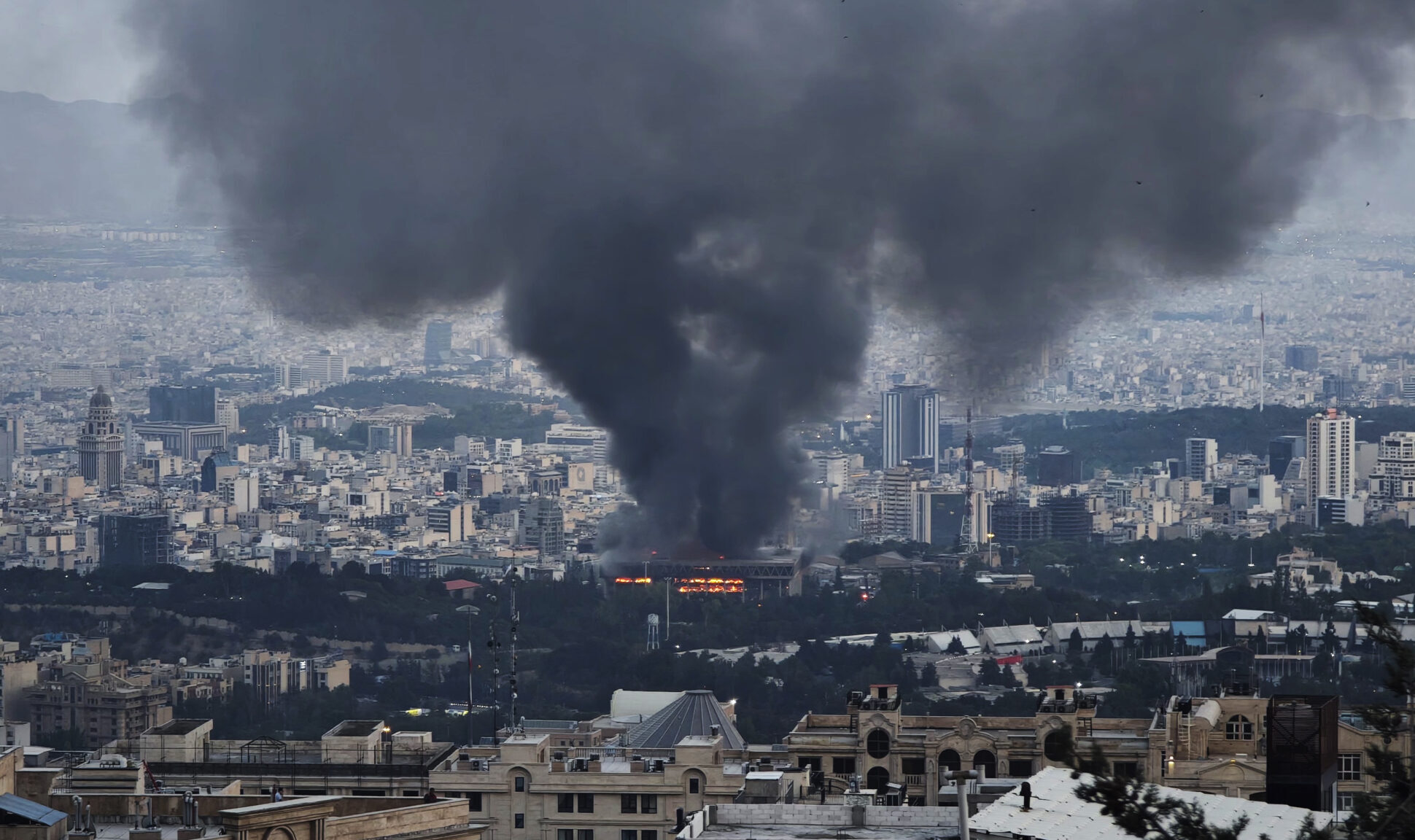What Next?
The Trump administration should take the money and run.

The Trump administration’s decision to drop bombs on Iranian nuclear sites appears to be an exercise in trying to have your cake and eat it too—an attitude I heartily support in general, so long as it doesn’t lead to obviously untenable absurdities. I hope the administration’s analysis, that this can be a clean one-off and the Iranians will return to the negotiating table, is correct, although I have reservations, as documented. The ceasefire Trump announced Monday night is promising, but it has been a bad year for ceasefires.
Let’s look at the possible downsides without the histrionics that some of my fellow travelers have indulged. First, the actual damage to Iran’s nuclear program remains unclear; one of the difficulties from the beginning has been that we can’t confirm the destruction of these sites without someone on the ground checking it out. How we do that is a good question, since our HUMINT capacities, like those of many Western countries (Israel is somewhat but not entirely an exception), have been in severe decline for decades. The vice president himself says we don’t actually know where the Iranians’ enriched uranium is.
So further strikes or some sort of limited ground operations are not yet off the table, even based on the premise that this all is just about ending the nuclear program. The same risks that attended the initial strikes will attend new action, and with greater force, as the Iranian regime is compelled to look like it’s doing something in response. The results of the one-off strike may per se offer the sort of open-ended justification for more involvement that it would be nice to avoid. This will provide much grist for the mills of those ideologically inclined to further action, a crowd that has been out in force.
The second cause for concern is the effect the strike will have on American diplomatic credibility; that’s weenie-talk for “nobody will take what we say seriously.” If you accept the administration’s assertion that it was on board with the initial Israeli strikes even as it was organizing a meeting with Iranian negotiators the following weekend, no foreign power will believe that the U.S. is engaging in diplomacy in good faith. If you think those assertions were CYA, as this author is inclined to do, it means the U.S. cannot control its unruly clients and junior allies. (Especially as there have been two such episodes in as many months—the Ukrainian strike on Russia’s strategic bomber fleet exposed the U.S. to similar criticisms.) The U.S. is beginning to look untrustworthy and unreliable as a negotiating partner. In a period of military overextension, it was to be hoped that more could be accomplished by diplomacy than with hard power.
Subscribe Today
Get daily emails in your inbox
These two concerns feed the third concern: What is the day-after plan here? Israel’s Osirak bombing in 1981 did not in fact end Saddam Hussein’s weapons of mass destruction programs; dismantlement came only with the Gulf War and the UN monitoring program implemented in the aftermath. Some sort of monitoring program will be needed by hook or by crook. It is not obvious that the Iranians will be more amenable to such monitoring now; it also seems more likely that they will try to cheat on such a monitoring program. (One of the lessons to small and middle powers this week: If you think you have a chance at a bomb, take it.) If you think the Iranians are going to cheat on any deal we cut anyway, this may not be a compelling argument—but that raises the question of why we were trying to cut a deal in the first place, and whether there is any stable solution short of forceful regime change, which most people do not at this point want. Splitting the difference by a middle-term “mowing the grass” approach has its own risks, and belies the argument that this was a one-off.
No wonder the administration’s rhetoric has been all over the place. The president’s comments on “REGIME CHANGE” and “MIGA” are doubtless a smackdown directed at the more prominent critics of the bombing, but they’re still not terribly comforting. The State Department’s spokeswoman saying that the United States is the second-greatest nation on earth after Israel may be an effort to butter up the Israelis to go it alone, but it’s not a great soundbite for the “America First” administration. Vance’s comment to NBC’s Meet the Press—“We’re not at war with Iran. We’re at war with Iran’s nuclear program”—is an amusing casuistry whose progress we will watch with great interest. “We are not at war with Iran, we are war with its army”; “we are not dropping an atomic bomb on Iran, we’re dropping it on its government at Tehran”; “I am not stabbing you with a broken beer bottle, I’m stabbing your spleen”; this line of rhetoric lends itself to interesting but unconvincing future expansions.
I’ll go out on a limb and say that this is bad politics. Unclear messaging about what we’re doing—indeed, unclear messaging about whether we’re even at war or not—does not tend to sit well with the public. Polling on these issues is difficult, but it seems the country is broadly positive on the strikes and negative on future involvement. Both to reduce the invitations to future entanglements abroad and to consolidate political capital at home, it seems the best course is some version of declaring victory and reducing our exposure in the region. The upside is that we have in fact set back Iran’s nuclear program; let’s try to avoid the downsides.